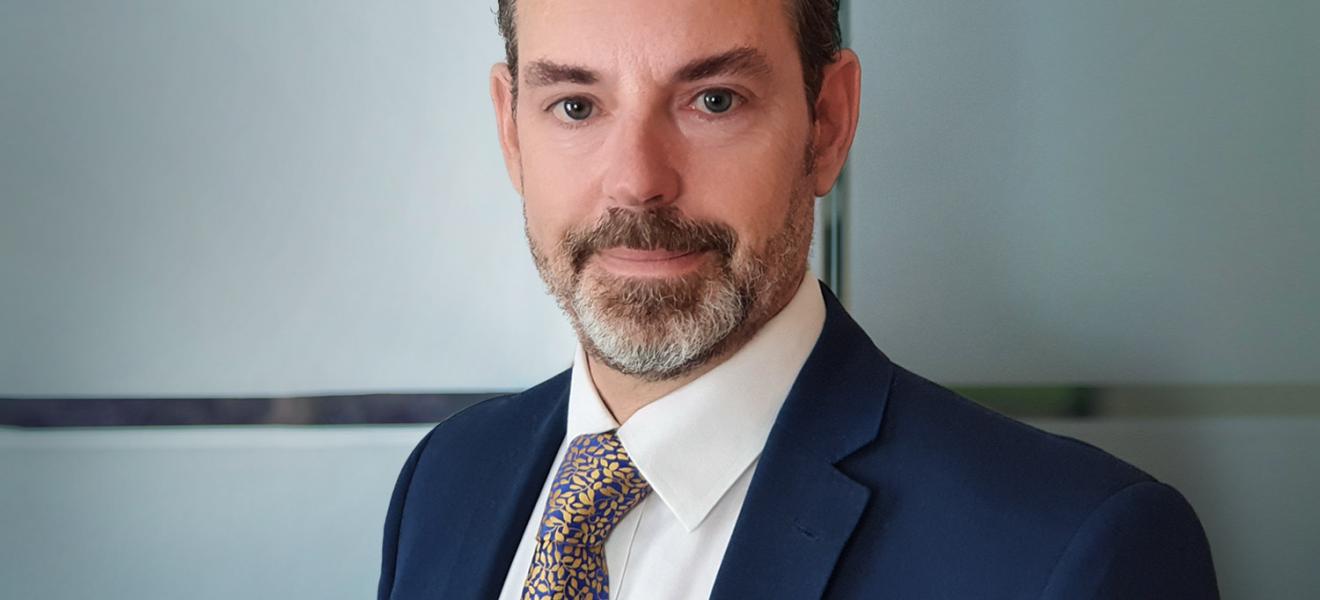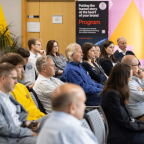
Opinion: Innovators are precious and must be protected
Innovators are innate risk takers and thus their courage to imagine, play, experiment and refine (often thousands of times as in the case of Thomas Edison, who spoke of the lightbulb having had 10,000 steps to success) deserve our respect as they risk everything. All innovators are standing on the shoulders of giants, perhaps best illustrated by the wheel (estimated to have been invented in Mesopotamia circa 3,000 BC, which was probably the result of watching stone being moved by rolling logs); progress is achieved in steps, sometimes small and sometimes large but always incremental.
“Innovation is the unrelenting drive to break the status quo and develop anew where few have dared to go,” according to Stephen Jeffes – and in the void between ideation and validation often lies heartbreak and despair.
Innovators see the world in a different way. It is a compunction to create solutions and, as human society grows ever more technologically sophisticated, so the pace of change and innovation accelerates. There are many theories about both the pace of innovation and how to create the most fertile conditions for enabling innovation. This is, after all, economic elixir. For many this elusive creative state is much like unfocusing one’s eyesight on magic eye pictures, it is the ability to imagine what might be free from preconceptions and conventional ‘wisdom.’ But how to achieve it?
Science fiction has often led the way, anticipating technologies and innovations which did not exist from Jules Verne to Arthur C Clarke. The birth date of the internet is widely accepted to be the 1st January 1983 and yet in an interview in 1974, Arthur C Clarke painted a picture of what the world would become years before the internet was conceived.
Many are content to accept the status quo (Henry Ford famously joked: “If I had asked the public what they wanted, they would have said a faster horse”), but for others the pull to be at the centre of the changes happening is irresistible. In one of his best speeches, Steve Jobs outlined his philosophy by observing that “everything around you that you call life was made up by people that were no smarter than you”.
Perhaps the most inspirational advertisement in history was Apple’s Think Different campaign for which the punchline was “the ones who are crazy enough to think they can change the world are the ones who do”.
“Necessity is the mother of invention” also has part of the essential truth about how innovation can surge both in longer periods of change such as the Age of Enlightenment in the 17th and 18th centuries and in times of war such as the quantum leap which led to the computer age thanks to Alan Turing who, incidentally, was building on the work of Charles Babbage and Ada Lovelace a hundred years before.
Innovation comes in many different forms, however inventors and innovators, in refusing to accept ‘what is’ and strive for improvement, are often viewed with suspicion or even fear. Trevor Bayliss, the inventor of the wind-up radio used to lecture on invention and always took great delight in reading the letter he had received from ‘an expert’ explaining to him why a wind up radio defied the laws of physics. Trevor always said that anyone could be an inventor and believed that all of us should be encouraged to think about things in a more creative way, to believe that each of us could be an inventor if we simply gave ourselves permission.
It is often said that ideas are like flowers, they wither if not exposed to the light. And yet for many, their ideas are exploited by others in a position to make ideas a reality. Protecting ideas and concepts is both prohibitively expensive and complicated. For many, intellectual property protection is a huge barrier to realising an invention or concept.
The UK has a long and distinguished history of innovation and today still ranks amongst the most innovative societies in the world. There are, of course, many different ways to measure innovation but perhaps one of the more credible sources is the WIPO Global Innovation Index which, in 2020, ranked the UK as fourth in the world behind the US, according to the Visual Capitalist in January 2021.
So many of the world’s most influential innovators are relatively unknown outside their industry, despite transforming the lives of billions. Linus Torvalds created the computer operating system Linux, which runs not only 96.3% of the world’s top 1 million servers but 100% of the world’s top 500 supercomputers. He is hardly a household name. Inspiration can, of course, strike anywhere, such as the bar in 1993 where Linus Torvalds is reputed to have watched a cowboy eating and created the concept of……. the Linux kernel.
What is certain is that we need to nurture and encourage innovation from the earliest age, celebrating ideas and sharing inspirational stories of achievement. Of course some of the world’s leading innovators have also become immensely rich (Jeff Bezos and Elon Musk to name but two), but wealth is a by-product of success and the soul of an innovator is fed not by money but by ideas. Innovators are the ones who change the world and with so many global challenges to confront, there has never been more need for sustainable innovation bringing with it environmental and social benefits.
Piers Corfield is founder and chief executive of Dashboard, a platform solution for industry that boosts insight through the smart use of data, based in Exeter Science Park. For the past 25 years, Piers has specialised in communications, cloud & enterprise, building commercial solutions from inception to realisation. (Full bio in original author panel).







